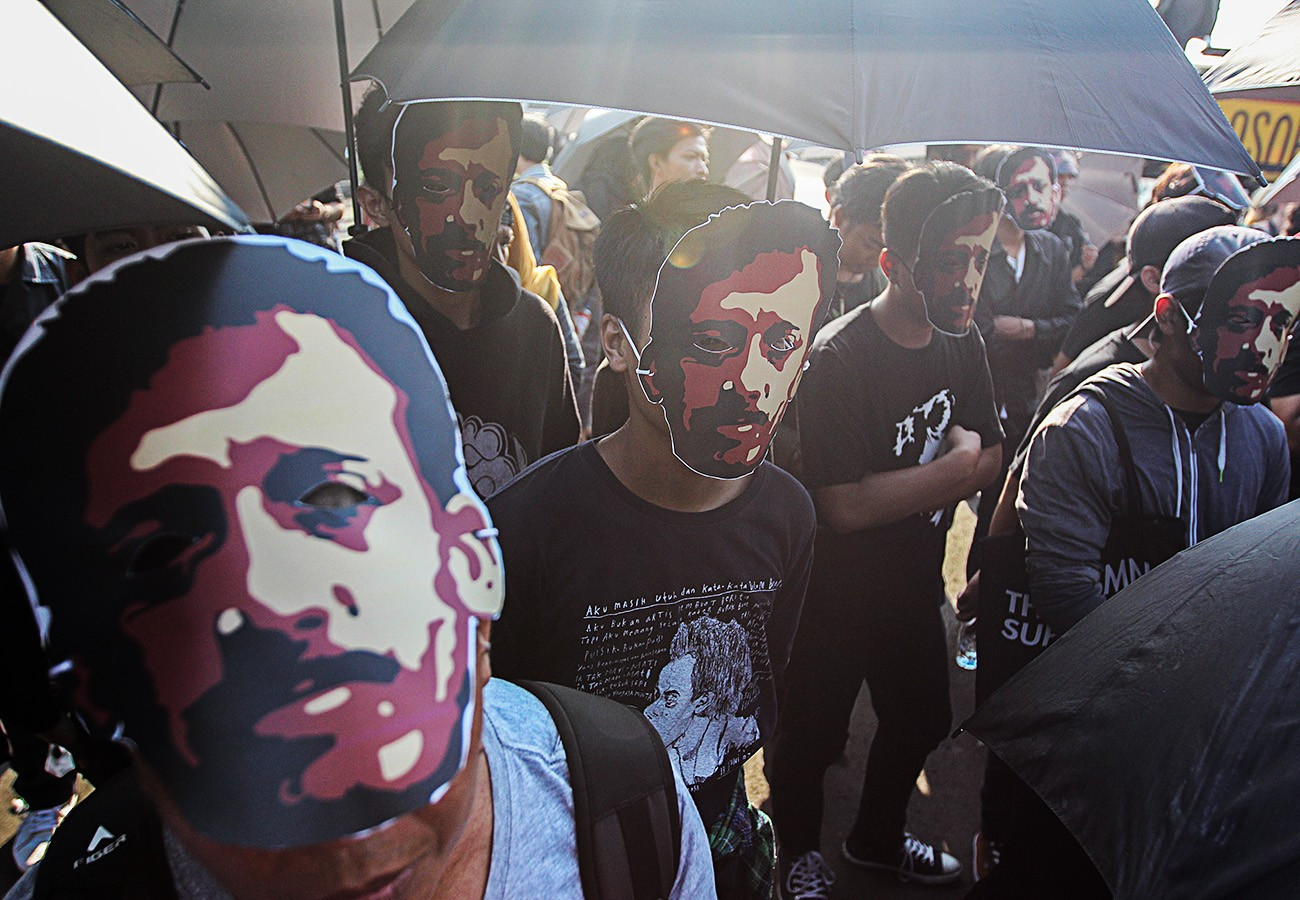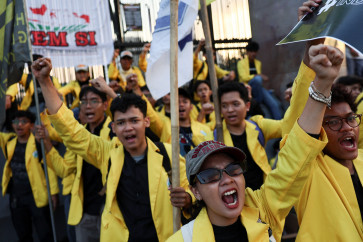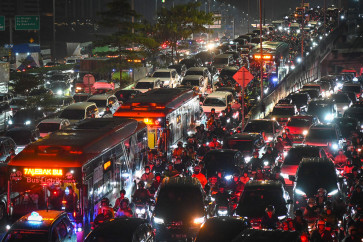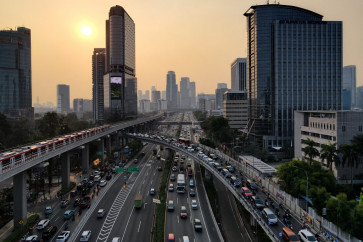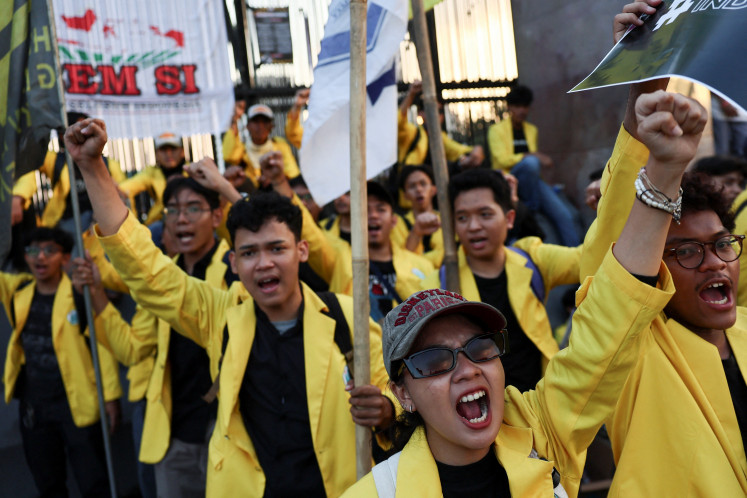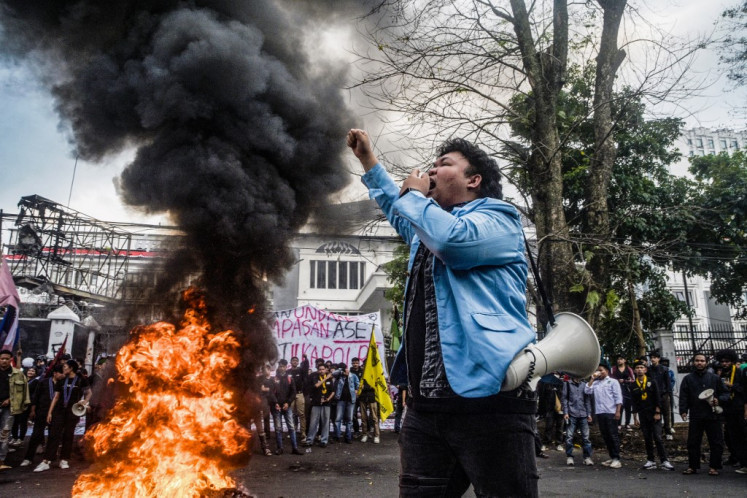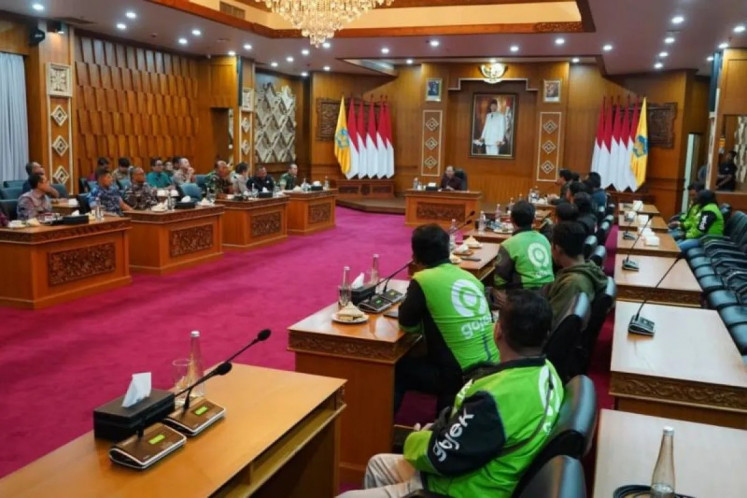Popular Reads
Top Results
Can't find what you're looking for?
View all search resultsPopular Reads
Top Results
Can't find what you're looking for?
View all search resultsIndonesian rule of law stuck in nearly decade-long rut
Indonesia's score in the World Justice Project’s annual Rule of Law Index has remained unwaveringly low this year, demonstrating the country’s continuing struggle to uphold legal norms.
Change text size
Gift Premium Articles
to Anyone
I
ndonesia's score in the World Justice Project’s annual Rule of Law Index has remained unwaveringly low this year, demonstrating the country’s continuing struggle to uphold legal norms.
The watchdog, which has been compiling the index since 2009, ranked Indonesia 64th out of 140 countries in terms of rule of law this year over chronic corruption issues and inadequate civil and criminal justice systems.
Indonesia scored below neighbors Malaysia (55th) and Singapore (17th).
Of the 15 countries indexed in East Asia and the Pacific, Indonesia came in ninth place, with Malaysia and Singapore in eighth and fifth place, respectively.
Indonesia's scores have remained between 0.52 and 0.53 for the past seven years, below the global average score of 0.55.
“There has been no significant improvement in any aspect. An increase of 0.01 points in seven years can be called stagnation. Indonesia is still in the same position as 2016,” Erwin Natosmal Oemar, an Indonesian expert for the index, said on Thursday.
The World Justice Project measures respect for the rule of law in states around the world. Countries are evaluated on eight key criteria: checks on government power, the absence of corruption, fundamental rights, open government, security and the functioning of regulatory, criminal and civil justice systems.
Criminal justice in Indonesia hit its lowest score this year at 0.39, far below the regional average of 0.53 and the global average of 0.47.
The study noted that an effective criminal justice system was a core aspect of the rule of law.
The components of Indonesia’s criminal justice score were low across the board, with the criminal investigation system scoring 0.34, the impartiality of the system at 0.28 and the correctional system at 0.30. All three aspects were below the global average of over 0.4.
The country also got bad marks with regard to corruption, with the legislative branch earning the lowest score, followed by the judiciary, the police and military and the executive branch.
The watchdog also awarded Indonesia a low 0.47 for the accessibility and affordability of its civil justice system, noting that discrimination and questionable enforcement of court verdicts persisted.
"This problem has been identified for seven years or since [President Joko “Jokowi” Widodo] took office. Unfortunately, if we look at the empirical data, there has been no change," Erwin said.
He encouraged Jokowi to leave a legacy of improved rule of law before the upcoming 2024 election.
Law and Human Rights Minister Yasonna Laoly and deputy minister Edward Omar Sharif Hiariej were not immediately available for comment.
‘Partly free’
The rule of law score comes amid widespread concern over democratic backsliding in the country.
Earlier this year, the Freedom in the World 2022 annual report from Washington-based democracy watchdog Freedom House rated Indonesia “partly free” with an overall score of 59 in 2021.
The watchdog analyzes the state of political rights and civil liberties in 210 countries and territories.
Indonesia had the same score in 2020 but has been on a downward trend since scoring 65 in the 2017 report.
“Indonesia has made impressive democratic gains since the fall of an authoritarian regime in 1998, establishing significant pluralism in politics and the media and undergoing multiple, peaceful transfers of power between parties,” this year’s report states.
“However, the country continues to struggle with challenges including systemic corruption, discrimination and violence against minority groups, conflict in the Papua region and the politicized use of defamation and blasphemy laws.”

